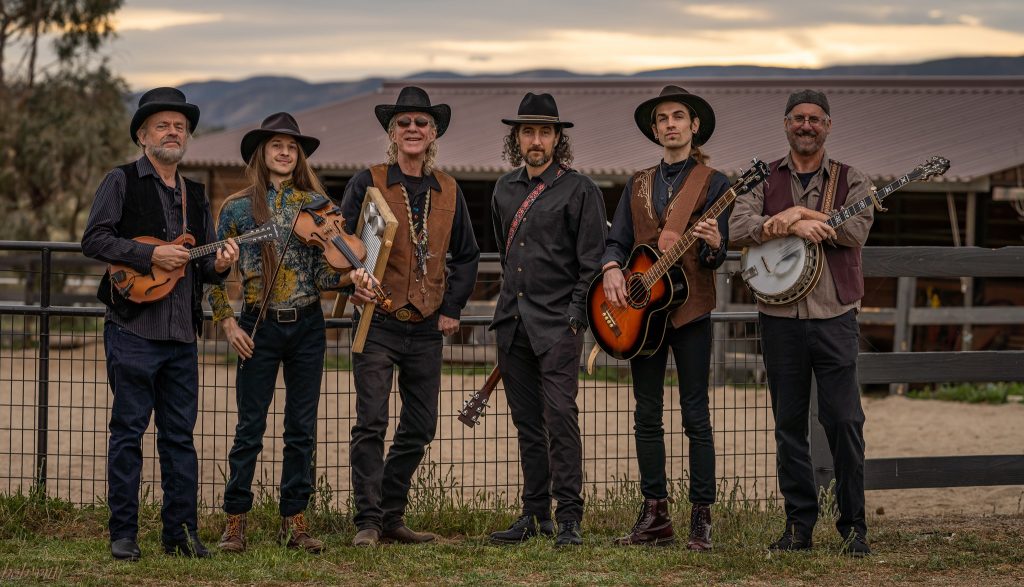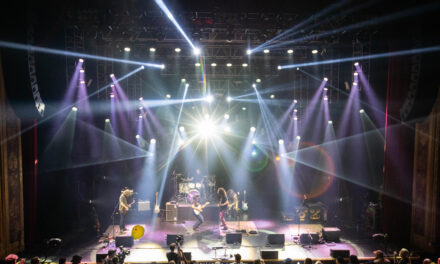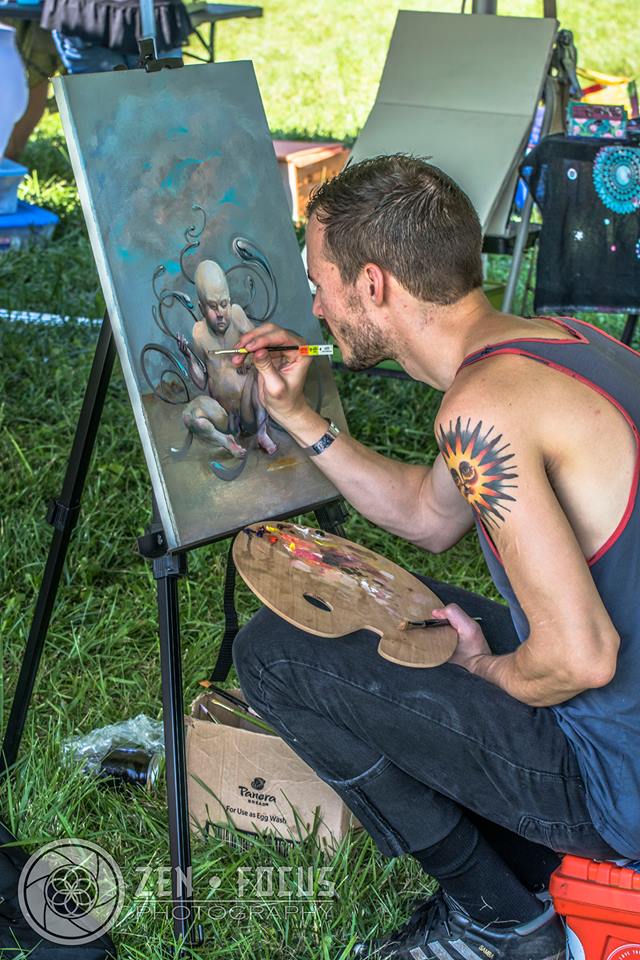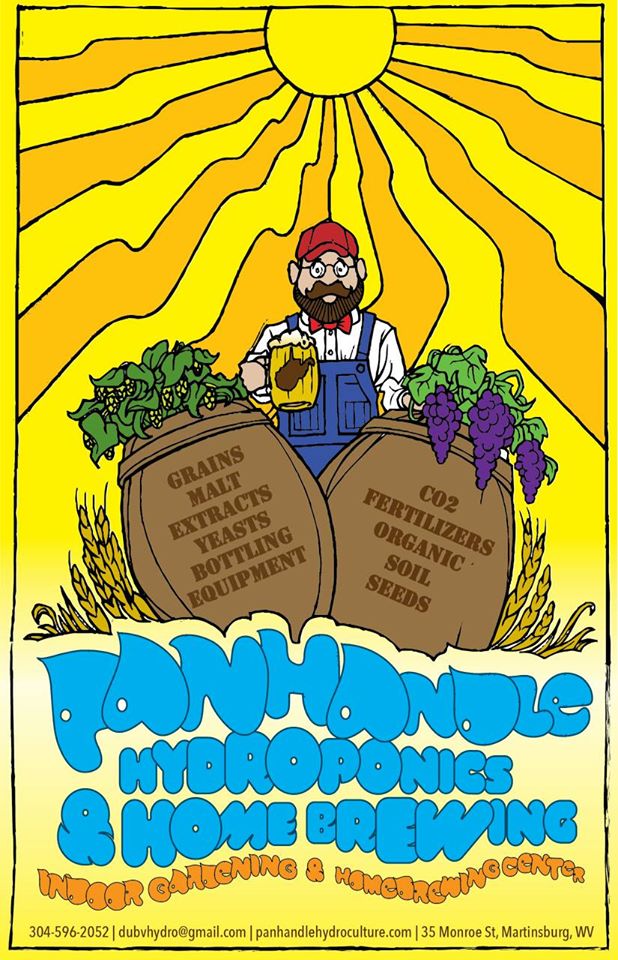
The Storytellers, the LA-based jamgrass band that specializes in Grateful Dead music, was on their way to a banner year, with appearances booked at several regional fairs and music festivals. Then came COVID. But it didn’t slow the band down, nor did it dampen their spirit. We sat down with Michael Garcia, the band’s Manager, to learn more about this band of “hippie outlaws” and their Zen-like approach to their future.
HOW IS THE STORYTELLERS FARING IN THE AGE OF COVID?
The Storytellers are faring pretty well, thank you. Like everyone, we lost a lot of big gigs and valuable rehearsal time, but that’s nothing compared to what some others lost. We waited a dozen or so weeks before getting together to rehearse. I think everyone in the band was concerned that we’d lost ground, but it wasn’t like that at all. The music was amazing and, as far as the emotional bond in the band, it seemed like we’d all just seen each other the day before.
THE BAND PLAYED IN ONE OF THE EARLY VIRTUAL MUSIC FESTIVALS?
We did. We performed in the OC Music Festival, a jam band festival based in Orange County, California back in May. We were fortunate that the guy who runs the festival, Ted Tesoriero, also does event production for some of the largest events in all of California, so it was a super high quality affair. We got some great video and it gave the band something to look forward to and work toward.
THE BAND PERFORMS A LOT OF GRATEFUL DEAD MUSIC. WHAT’S THE STORY?
Well, the story is that when you’re performing folky music and you want to touch on the greatest songs of that genre, you simply can’t ignore the music of Jerry Garcia and the lyrics of Robert Hunter. The simplest definition of “folk music” is that it tells stories, like about trains and gold mines and scoundrels and all of that. But the music, the chords and the changes that accompany the lyrics, well, they’re integral to the storytelling. We love the songs, but we really love the challenge of performing these songs in a way that brings satisfaction to the audience and to the band. We do have a substantial Deadhead fan base, but many in our audience have been exposed to these songs through us. We don’t want to be known as a Dead cover band, necessarily, because we’re not trying to sound like the Grateful Dead. We do want to be known as capable interpreters of those songs, though. For an audience that adores the songs, they’re going to have a great time at a Storytellers show. Still, Dead music is only about half of what’s on our song list.
YOU GUYS ARE ALSO PLAYING IN THE JUNE LAKE JAM FESTIVAL THIS FALL. HOW ARE YOU GETTING INTO THESE JAMBAND FESTIVALS?
You know, I think there’s a big surge in interest in all these improvisational musical genres. I mean, The Storytellers is not a bluegrass band and it isn’t a pure jam band. We call ourselves a “jamgrass” band or “newgrass”. We’ve even been referred to as “Deadgrass”. But the people who run these festivals, like Ted or Janet Hunt, who puts on the June Lake Jam Fest, they’re Deadheads with exquisite taste, so they’re really into the Old & In the Way, folky cannon of the Grateful Dead, which isn’t only one of the great jam bands, but really a folk band at heart. They appreciate where we’re coming from, which is to interpret these songs in a different way, with a lot of soul and substance and a lot of harmony and a good amount of jamming. These bluegrass folk, and people who come to our shows, they’re not so easily satisfied with the story we’re telling unless we can persuade them instrumentally too. You know, they want to be convinced that “Home Is Where the Heart Is” so we sing the words and then we take it further with the fiddle or the mandolin or the banjo. There’s essence in words and essence in the music so long as a band can find it and represent it. The jams are where that happens. And because the guys want to make sure they’re making their point, the jams go on a bit longer than most folk and bluegrass bands usually solo for. So I think that’s helping us get into these jam festivals.

YOUR BAND TOLD “SPREAD THE JAM” RADIO SHOW THAT THEY’VE NEVER HAD A SINGLE ISSUE OF DISAGREEMENT, CONFLICT OR PROBLEMS GETTING ALONG. IS IT GOOD FOR A BAND TO BE THAT AGREEABLE?
Yes! Absolutely. Agreeable is where it’s at. We’re a harmony band in every sense of the word. We performed earlier this year at Coffee Gallery Backstage, which is the legendary folk music promoter Bob Stane’s club in LA. We did all this folky harmony stuff and at the end he said, “You guys have credibility.” That’s when we knew we’d achieved something. We’d like to think he’s talking about harmony in how our band thinks and how we create and collaborate and treat each other and our “fans”. Not just hitting the notes. Relationships are supposed to be easy, not hard, not challenging, but easy and fun. Like most musicians, the guys look forward to rehearsals because they love to play music. But when you love the people you’re playing music with enough to bring your best self to the gathering, that’s where the magic happens. That’s the state you want to be creating from when you’re trying to reach up into the ether and pull something inspired down. Music is vibration and it matters if the players’ vibration is in harmony with the music and with each other. I’m sure there can be something of depth created from tension and disagreements, but we’re fine where we are, thank you very much.
INTRODUCE US TO THE BAND!
Okay, there’s Lance Frantzich. He plays the bass. He’s a Deadhead and you can hear the Phil Lesh influence. He’s a lead bass player. He does the 1-3, 1-5 patterns but he likes to walk, too. The way he plays, to go back to your other question, is probably why the jam band festival people like our band. He gives us the jam band cred. Then there’s Jonathan Sheldon, our extraordinary fiddle player. He’s just a very sensitive, thoughtful player. He’s been immersing himself country and bluegrass fiddle and it’s bringing a thrilling element to what he’s doing on stage, particularly with his jams. Dave Ryan is our mandolin player. He’s a very capable jammer and is very tasteful and versatile in his playing. His musical intuition guides his strong melodic sense. Steve Stelmach handles drums and percussion. He’s just awesome and innovative at what he does and he’s super passionate about it and the band. We have David Burns manning the banjo station. I say this a lot, but having Burns in our band is like the Chicago Bulls having Michael Jordan on the team. He has so much experience. You know, it’s like, when it doubt, give the ball to him! You know you’re gonna win. Scott Diehl plays rhythm guitar and does a lot of the singing. He also plays a major role in our marketing and in our multi-media and live sound. He’s one of those guys that are great at everything they do.
WITH YOUR HARMONIES, YOU COULD BE CALLED “FOLKGRASS” TOO. DID YOU ALWAYS INTEND TO BE A HARMONY BAND?
Yes, absolutely so. We could be called “folkgrass”, too. Most every song we do has three part harmonies. In the very beginning, we were just a folk act. There was just guitar, bass, fiddle and two voices. The guys work on harmony singing one day a week and they’re serious about it. Investing in in-ear monitors was a game-changer as far as hitting those harmonies during a live show. You have to be able to hear yourselves. What’s special about our harmony singing, I think, is the range of character in the voices. You have three distinct voices producing a very beautiful, very soulful blend. It just tears me up when they’re singing, “I will walk alone by the black, muddy river …”. Everyone in the band, they’re substantive, quality people. All adventurous, all outlaws, at least as far as thinking outside the mainstream box. I mean, just choosing to study banjo or mandolin is a counter-cultural act. Two thirds of the band wears their hair long. They’re into deserts and coyotes and eagles, and railroads and road trips. There’s a few vegans in the band. I’m thinking that’s some of the credibility that Bob Stane noticed. We want to be seen as hippie, folky outlaws.
WHERE DOES THE BAND HOPE TO BE IN A YEAR? WHAT’S 2021 GOING TO LOOK LIKE?
If we’re still a band that has fun playing together and loves each other, that’s all we can hope for. I mean, that’s all we’re trying to do, really. We’re not trying to get anywhere, let alone get anywhere fast. Where the band is now is a very special place and time, because we’re not so small that nobody knows us, yet we’re not so big that we can’t enjoy the close relationship we have with our “fans”. We need to figure out a way to get larger, in terms of recognition, and yet keep that intimacy with our audience. We believe that our practice of keeping focused on where we are, now, will lead to good things, and it has. That’s the story right there. Stay present, stay focused and good things happen.

WHAT’S NEXT FOR THE STORYTELLERS?
We are heading into the studio in September to record our album “Howling In the Hills”. It’s going to have some original music and some bluegrass and folk covers, played Storyteller style. We hope the record will appeal to the more traditional bluegrass diehards out there. Burns, who’s been a part of the Southern California bluegrass scene for a good long time, will be acting as producer and making sure the “grass” part of “jamgrass” is being captured. By the time it’s ready to go, hopefully we’ll be out of the shadow of COVID-19 and ready to hit the road, so to speak, to support the record. We’ll be hitting the fair and festival circuit hard and seeing how many smiles we can bring to the people who come, and how many people we can get dancing. For us, that’s the prize. That’s really what it’s all about.






